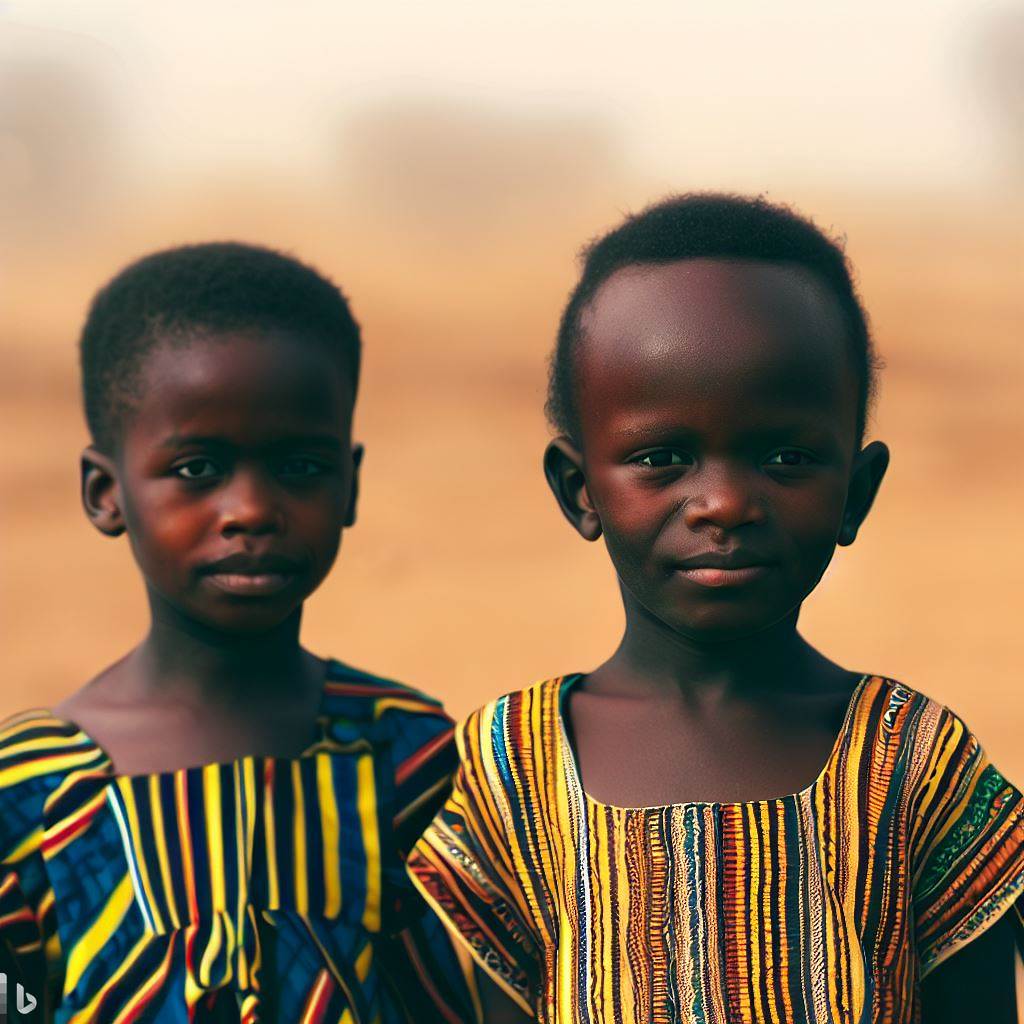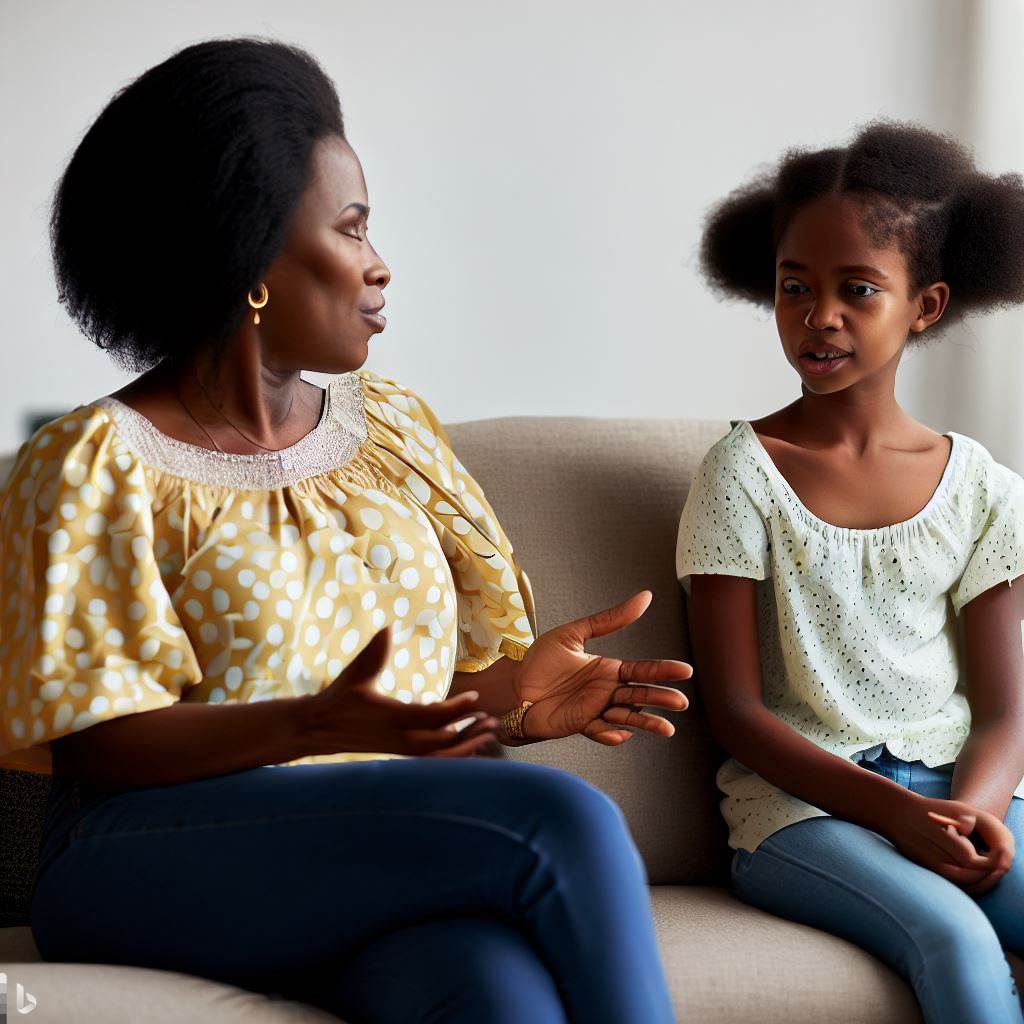Introduction
Parenting is a challenging venture that can be demanding for anyone, but it becomes more grueling when you have a child with a disability.
The situation becomes even more difficult in Nigeria due to the stigma attached to disabilities. This article aims to highlight the struggles faced by parents raising children with disabilities in Nigeria.
The importance of discussing this issue cannot be overstated. Children with disabilities deserve the same love, care, and opportunities as any other child.
Still, due to the stigma, parents often face social pressure, emotional distress, financial burdens, and lack of access to proper care and support.
In Nigeria, these struggles are compounded by poor infrastructure, inadequate healthcare services, and limited education opportunities, among other challenges.
Parents who have children with disabilities often find it challenging to navigate life and provide for their children’s needs.
They have to deal with the emotional rollercoaster that comes with seeing their children face discrimination and exclusion from society.
Moreover, they have to deal with the guilt of feeling like they could have done something to prevent their child’s disability whenever people make insensitive remarks.
Additionally, raising a child with a disability is expensive. The financial burden of medical bills, therapy sessions, adaptive equipment, and medication can be overwhelming for some families.
Many Nigerian parents struggle to afford the required medical care, making it difficult to provide their children with the best possible quality of life.
Ultimately, raising a child with a disability in Nigeria is no easy feat. Parents face numerous challenges ranging from lack of support and poor infrastructure to financial burdens.
This issue deserves more attention from the government and society at large. Parents of children with disabilities need support and understanding to create a more inclusive and supportive environment for their children.
Read: Saving for Retirement: A Must for Every Nigerian Parent
Challenges Faced By Parents of Children With Disabilities in Nigeria
Raising children with disabilities in Nigeria can be an overwhelming and challenging experience.
Parents of children with disabilities face numerous challenges that affect their child’s physical, emotional, and social quality of life.
Parenting Made Just for You
Get personalized Parenting Solutions tailored to your child’s needs. Transform your parenting journey with expert guidance in 1-3 days.
Get StartedHere are some of the challenges faced by these parents
1. Limited Resources and Support Systems
Most parents of children with disabilities in Nigeria face the challenge of limited resources and support systems needed to provide adequate care for their children.
Many of these parents live in poverty and lack access to basic amenities such as clean water, healthcare, and food.
Moreover, Nigeria lacks adequate support systems for children with disabilities, such as financial aid, assistive devices, and rehabilitation services.
Consequently, numerous parents grapple with fulfilling their children’s fundamental requirements and resort to begging and other methods of seeking assistance.
2. Stigma and Discrimination
Stigma and discrimination against children with disabilities is another significant challenge faced by parents in Nigeria.
Children with disabilities are often viewed as a burden or a curse on families, leading to social isolation and exclusion.
This discrimination extends to the workplace, where parents of children with disabilities may struggle to find gainful employment or are subject to discrimination in the workplace, leading to poverty and social exclusion.
3. Inaccessible Infrastructure
Children with disabilities face significant challenges in Nigeria as the majority of infrastructure excludes them, making it inaccessible.
Parents struggle to meet their children’s needs due to unaccommodating schools, hospitals, and public transportation.
Consequently, vital services such as rehabilitation, education, and medical care become limited, reducing their children’s quality of life.
4. Limited Educational Opportunities
Children with disabilities in Nigeria face limited educational opportunities, which can have severe consequences for their future.
Children with disabilities in Nigeria face a dearth of schools that cater to their needs. Even existing schools may lack resources, leading to inadequate education.
Consequently, their future prospects and opportunities are severely limited, hindering their ability to find employment and contribute to society effectively.
Unveil the Perfect Name that Tells Your Family's Story
Let us help you find a name that embodies your family's values, traditions, and dreams. Our personalized consultation weaves cultural insights to create a name that's uniquely yours.
Get Started
Parents of children with disabilities in Nigeria face significant challenges that negatively impact their children’s quality of life.
These challenges range from limited resources and support systems to stigma and discrimination and limited educational opportunities.
While there have been some improvements in recent years, much work still needs to be done to address these challenges and promote the inclusion and welfare of children with disabilities in Nigeria.
Read: Secure Your Child’s Future: Education Funding in Nigeria
Delve into the Subject: Financial Stress: The Hidden Challenge for Nigerian Parents
The Impact on the Child
Children with disabilities in Nigeria face numerous physical and emotional challenges.
They often experience stigmatization and discrimination, which can have detrimental effects on their mental health and well-being.
Physical and Emotional Challenges
Children with disabilities often suffer from physical challenges such as limited mobility, chronic pain, and difficulty with speech and communication.
These challenges can make it difficult for them to perform basic tasks and activities of daily living, such as bathing and getting dressed.
Emotionally, children with disabilities may feel isolated, ridiculed, and excluded from society.
They may struggle to form social connections and have difficulty making friends. Additionally, they may suffer from anxiety and depression as a result of their disabilities and the challenges they face.
Limited Access to Basic Needs
Children with disabilities in Nigeria often face significant barriers to accessing basic needs such as healthcare, education, and employment.
This is due to a lack of resources, infrastructure, and expertise in the care and support of children with disabilities.
Without access to appropriate medical care, children with disabilities may struggle with the management of their conditions, leading to further physical and emotional challenges.
Lack of access to education can also hinder their development and limit their opportunities for success in the future.
Isolation and Exclusion from Society
Children with disabilities in Nigeria are often ostracized and excluded from society due to the stigma surrounding their conditions.
They may be viewed as a burden or a source of shame for their families, which can lead to neglect and mistreatment.
Additionally, children with disabilities may struggle to access public spaces and participate in activities that other children take for granted.
This can lead to further isolation and exclusion, exacerbating their emotional challenges.
Effects on their Mental Health
Children with disabilities in Nigeria are at increased risk for mental health challenges such as anxiety, depression, and behavioral disorders.
These challenges may result from the physical and emotional difficulties associated with their disabilities.
Without adequate support and resources, children with disabilities may struggle to manage their mental health challenges, leading to further complications and limitations in their daily lives.
Raising children with disabilities in Nigeria is a struggle that requires significant resources and support to ensure that they are able to live full and fulfilling lives.
By addressing the physical, emotional, and social challenges that children with disabilities face, we can help to create a more inclusive and compassionate society for all.
Read: Surviving Economic Changes: A Guide for Nigerian Families

The Role of the Government and Society
Parents raising children with disabilities in Nigeria face numerous challenges, including lack of support from both the government and society.
Children with disabilities often face discrimination, and their families are left without adequate resources and support systems to help them navigate the challenges they face.
In this section, we will discuss the role of the government and society in supporting families and children with disabilities in Nigeria, and the importance of raising awareness and challenging negative stereotypes.
Policies and Programs to Support Families and Children with Disabilities
- The Nigerian government needs to establish policies and programs to support families and children with disabilities.
- These policies should focus on providing financial support, education, healthcare, and employment opportunities for children with disabilities and their families.
- The government also needs to establish specialized services and facilities to help children with disabilities develop their skills and reach their full potential.
Raising Awareness and Challenging Negative Stereotypes
- Negative stereotypes surrounding disabilities are widespread in Nigeria, and these stereotypes contribute to the discrimination faced by children with disabilities and their families.
- Raising awareness about disabilities and challenging negative stereotypes is crucial in promoting inclusion and equality for children with disabilities.
- The media and education systems need to play a more significant role in challenging negative stereotypes and creating more positive representations of disabilities.
Inclusive Education and Infrastructure
- Many children with disabilities in Nigeria are denied access to education due to a lack of inclusive infrastructure in schools.
- The Nigerian government needs to provide funding to ensure that schools are equipped with facilities that cater to the needs of all children, including those with disabilities.
- Furthermore, the government needs to invest in teacher training programs to ensure that teachers are equipped with the knowledge and skills required to teach children with disabilities.
Most importantly, the Nigerian government and society have a significant role to play in supporting families and children with disabilities.
This support should include the establishment of policies and programs to provide financial support, education, healthcare, and employment opportunities for children with disabilities and their families.
Additionally, raising awareness and challenging negative stereotypes is essential in promoting inclusion and equality for children with disabilities.
Finally, investment in inclusive education and infrastructure is crucial to ensuring that all children in Nigeria have access to quality education.
Read: Family Financial Goals: A Comprehensive Guide for Nigerians
Conclusion
Parents raising children with disabilities in Nigeria face numerous challenges including limited access to education, healthcare and public spaces.
These challenges make it difficult for these children to lead a dignified life and reach their full potential.
The need for change in the treatment of children with disabilities in Nigeria is urgent. We must work towards creating a more inclusive society that offers equal opportunities to all individuals, regardless of their abilities.
It is the responsibility of all stakeholders, including the government, private sector, civil society organizations and individuals, to come together and drive this change.
We must prioritize investments in infrastructure, education and healthcare to create a more supportive environment for children with disabilities.
Creating a more inclusive society for children with disabilities is not only a moral obligation, but also makes economic sense.
These children have the potential to become productive members of our society if given the right support.
Let us all work together to create a Nigeria where every child, regardless of their abilities, can live with dignity and reach their full potential.




